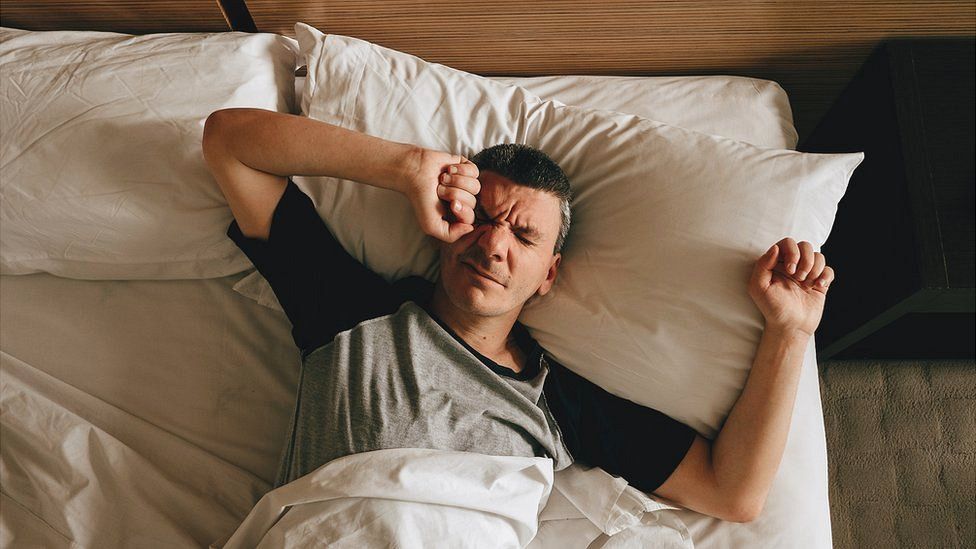ARTICLE AD BOX
 Image source, Getty Images
Image source, Getty Images
By Michelle Roberts
Digital health editor
At least five hours sleep a night may cut the over-50s' chances of multiple chronic health problems, researchers say.
Ill health can disrupt sleep - but poor sleep may also be a forewarning or a risk itself, they say.
There is evidence sleep helps restore, rest and rejuvenate the body and mind - but why the "golden slumber number" might matter remains unclear.
The PLoS Medicine study tracked the health and sleep of UK civil servants.
All of the about 8,000 participants were asked: How many hours of sleep do you have on an average weeknight?"
Some also wore a wrist-watch sleep tracker.
And they were checked for chronic conditions, including diabetes, cancer and heart disease, over two decades of follow-up:
- Those who slept five hours or less around the age of 50 had a 30% greater risk of multiple ailments than those who slept seven hours
- Shorter sleep at 50 was also associated with a higher risk of death during the study period, mainly linked to the increased risk of chronic disease
Experts generally recommend about seven or eight hours, the researchers, from University College London and Paris Cité University, say.
Why do we sleep?
Scientists do not know for sure, but it is clear that sleep helps the brain process memories and is good for mood, concentration and metabolism.
Sleep is also an opportunity for the brain to be cleared of waste.
Image source, Getty Images
Good-sleep tips
- Tire yourself out during the day by keeping busy and active but slow down towards bedtime
- Avoid daytime naps
- Establish a good night-time routine and make sure your bedroom is relaxing and conducive to sleep - thick curtains or blackout blinds, a comfy room temperature and bedding, and no big distractions, such as scrolling on a smartphone in bed
- Reduce or eliminate caffeine and alcohol close to bedtime
- If you can't nod off, don't force it or become frustrated - get up and do something relaxing for a bit, such as reading a book, and then return when sleepier
- If you work antisocial shifts, try a short sleep before your first run of nights, to transition. If you are coming off nights, try a nap to see you through and then go to bed early that evening
Surrey Sleep Centre director Prof Derk-Jan Dijk told BBC News: "This work reinforces that getting only short sleep is not good for us. Generally, it's not healthy - although for some, it may be OK.
"The big question is why do some people sleep less. What is causing it and is there anything we can do about it? Sleep is a modifiable lifestyle factor to a certain extent."
Long stretches of bad sleep can severely affect wellbeing.
GPs now rarely prescribe sleeping pills, which can have serious side-effects and cause dependency.
But sleep problems can often be resolved and support is available.
Related Internet Links
The BBC is not responsible for the content of external sites.

 2 years ago
30
2 years ago
30








 English (US) ·
English (US) ·